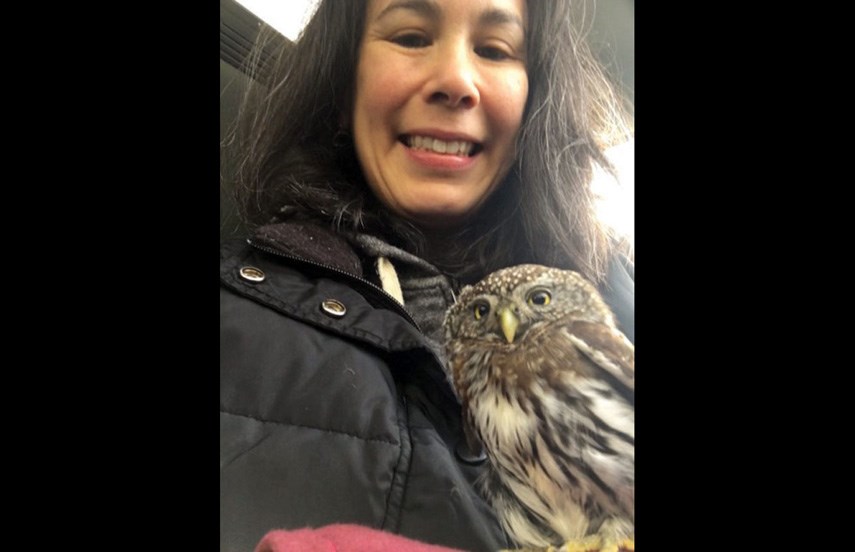A small pygmy owl most likely fell prey to rat poison in a residential development near Deep Cove on the weekend.
Caroline Martini was driving down Raven Woods Drive, off Dollarton Highway, around 11 a.m. on Sunday, when she spotted “a small bird in the road.”
An avid bird watcher, Martini was stunned by the sight. She parked, jumped out of her vehicle and ran towards the listless animal, immediately identifying it as a pygmy owl.
Martini said the owl had “incredible eyes” and she got the sense the feathered creature seemed to be aware of what was happening.
“He looked right at me and I scooped him up off the road. He was so tiny ... fit in the palm of my hand. I could tell he was injured as he didn’t try to fly away or struggle in my hands,” recalled Martini.
Not sure what to do with the little guy, Martini googled “owl rescue Vancouver.” The first hit she got was Orphaned Wildlife (OWL) Rehabilitation Society, which lists a phone number the public can call around the clock for owl or raptor emergencies.
An OWL volunteer who answered the phone instructed Martini to find a box and a towel to keep the injured pygmy safe and warm until another volunteer arrived. The society has trained volunteers stationed all over the Lower Mainland, ready to swoop in and save wildlife in distress.
In this case, a volunteer was minutes away from Raven Woods and was able to quickly transport the injured creature to OWL’s rehab centre in Delta.
The pygmy was found with a noticeable bald spot on his head and some bruising, said OWL raptor care supervisor Martina Versteeg. Internally, the owl had widespread bleeding and his condition was rapidly deteriorating.
“Unfortunately, he had some severe trauma and he actually didn’t make it overnight,” said Versteeg.
Given the owl had no broken bones, Versteeg’s theory is that he ingested some rat poison and his body gave out.
“He was just found in the middle of the road, so he very well could have had a little hit on the noggin as well,” said Versteeg. “But sometimes getting into a poison makes them weaker anyway – so that’s when they are more likely to get injured in a different way that’s more severe.”
In December it was suspected a number of North Shore owls had been inadvertently killed by rat poison.
“It’s just kind of an ongoing thing,” said Versteeg. “It’s not an isolated problem in North Vancouver and it’s just that those ones were proven to have (rat poison) in their body and that’s what caused their death.”
Once rats have consumed a poison like warfarin, they become easy prey for owls and other animals. The toxins are then passed up the food chain.
In advising people on how to deal with rodent problems, Versteeg said they must first look at what’s attracting them to the area.
“We recommend, instead of going to poison immediately as your first choice, obviously trying to prevent why they are coming there. It’s usually food … or an entry hole to a nice shed that is warmer than the outside. So you just have to block off access points and food and then you won’t really have the problem to begin with,” said Versteeg.
In the wintertime, northern pygmy owls move to lower elevations and have been known to hunt songbirds at bird feeders.
After being informed that her feathered friend had passed away, Martini had mixed feelings.
“I’m happy he at least was cared for and died in a warm, caring environment, rather than on a cold road,” she said.



